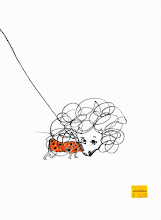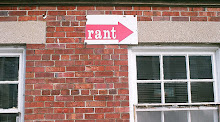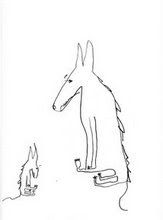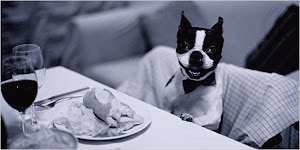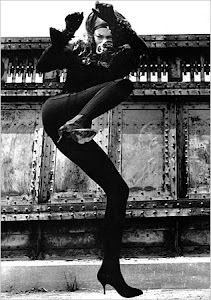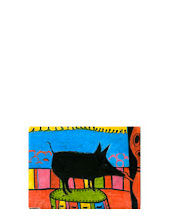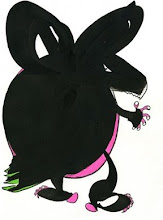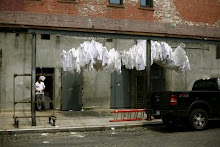I had lunch today with someone I have known for years, but who would not have become such a friend were it not for the fact that two years ago she was dying. Or, if not precisely dying, fighting for her life against a cancer she seems cured of. That she was ill gave her time and a timorousness that allowed me in -- prior to that she was a hard driving, ambitious, fabulously successful ad executive living a life I could barely imagine, and her life didn't allow for the likes of me. She was on a fast track and I was busy picking daisies. Or something.
In fairness her cancer was merely the biggest of her concerns at a time that tested her strength. Her beloved father died, her daughter fell and broke both arms, she was fired after about a year of abuse from a job she loved and hated. And then she was sick.
As she proceeded through treatment she needed other things to think about and so we worked together on a small project, and I think loved one another's company; we became friends, finally, not merely acquaintances. Because of the grief and pain we were both going through, while our own, we now had very common ground and the kind of wide open space that allows you to say things and admit fears you otherwise would protect both yourself and your listener from. In our case there just didn't seem to be much reason to bother with such niceties. What we were going through was in the book of Life's Hard Lessons, it seemed stupid not to share the wealth.
Today we met at a favorite bistro where we order the EXACT same thing every time, a delicious and simple French lunch with a glass of wine. We caught up. She is healthy, seems completely recovered and is gorgeous and robust again, the papery quality of her skin gone and a bloom in its place, her ginger hair now wildly curly and finally utterly her own. She has eyebrows, eyelashes, energy.
And now comes the rest of her life. I feel I have a second chance now she said. I feel I have been given a special opportunity and I think to myself, is this what my life is? This job, this routine, this? This is all it is?
So change is brewing.
Mid-life crises have been given a bad name, maybe by the disgruntled, content spouses left on the curb and the families perfectly happy with the routine, the job, this. My friend says perhaps if she hadn't gotten sick she wouldn't have noticed the routine or thought there was anything MORE at stake. I'm not so sure. I am also having a mid-life crisis, I prefer the term "awakening", without one drop of chemo or one night's fear of imminent death.
There is a yearning, she said, for more, to follow a dream, to live somehow more creatively. "I want to do something, I just don't know what it is." The question then is, what is your bliss? What are you passionate about? Easier asked than answered! It is so hard in adulthood to dream a dream or unleash from expectations and disappointments and what IS.
I don't know what I love, she said. And then she said "actually, I love food. I would love to eat and drink, how do you make a life about that?"
How indeed.
Which brings me, and I hope her, to My Life in France by Julia Child, a wonderful memoir of Julia's awakening at an age not so much younger than us. Julia followed her husband to Paris and France after the second world war and discovered a love of....food. She and her husband followed this food with an unswerving passion, taking time off from eating only to repair their gall bladders. If there was a dish reputed to be excellent at a small restaurant on a cow path in southern France, they went. If there was something rarely concocted but would be concocted this once, at this cost, they saved and they savoured. The result of this passion as we all know now is Mastering the Art of French Cooking (which took YEARS to create) and the first ever cooking show on newfangled TV -- this spawned a massive industry.
Julia's unadulterated love for food and all things French is refreshing, as is her candour which I suspect is unbeknownst to her. She stole that cookbook out from under a French woman's nose, it would seem her beloved husband might be a touch...exuberant as my boss would say, gay as the rest of us might. He was also a bit of an underachiever shall we say, and perhaps an artist only in her eyes. They were an eccentric couple of bachelors, really, but all of that is by the by. The wonderful thing is the boundless enthusiasm she feels for this amazing discovery: Food is meant to be a pleasure, it is not merely fuel, something that hadn't dawned on her Yankee self until she found herself in Europe.
Passion and enthusiasm are always not merely attractive but compelling. Finding passion, what we love, what part of life gives us the most pleasure, is what God meant us to seek.
